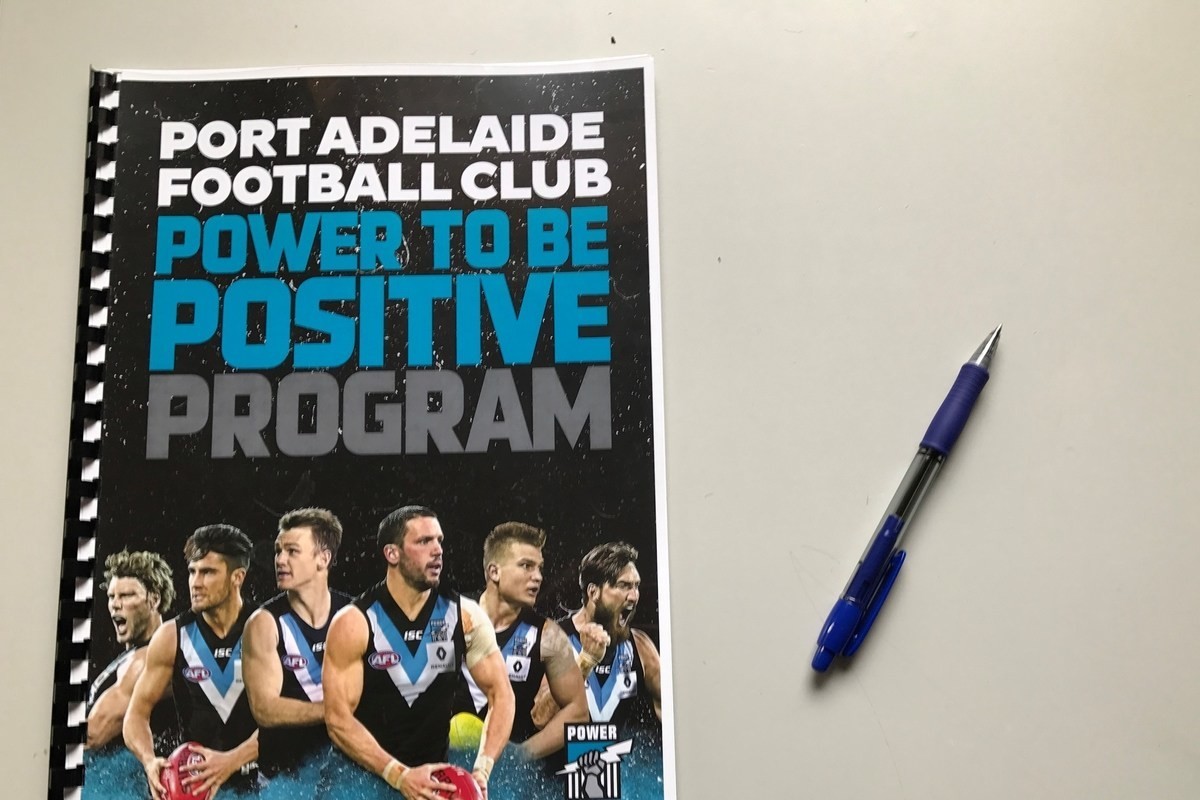
Greetings!
I was fortunate on Wednesday (2nd August) to be able to attend the “Power to be Positive Program” (PTBP) presented by Power Community Ltd, the community engagement arm of the Port Adelaide Football Club. Over 40 students attended the program, held in the OASIS centre at Flinders University, an event organised by Health, Counselling and Disability services.
PTBP was developed in conjunction with the South Australian Health & Medical Research Institute (SAHMRI), building on Professor Martin Seligman’s ‘PERMA’ well-being model.
Seligman’s PERMA models says that there are 5 core components of well-being and happiness:
- The cultivation of positive emotions
- Engagement with enjoyable activities and hobbies
- Positive relationships
- Finding a sense of meaning and purpose
- Accomplishments (or achieving stuff)
The PTBP program attempts to translate these components into a set of skills/tools that an individual (in this case, student) can use to cope with the challenges of being a student: deadlines, exams, relationships, work/life balance, finances.
The skills/tools presented included:
- Moving from a fixed mindset to a growth mindset
- Learning from previous experiences (self or others) of recovering from life’s challenges
- Mindfulness
- Changing the way you think
- Gratitude
- Finding meaning
The presenters (including one of the players – Brad Ebert) talked about how and when these skills are used by elite AFL players. For example, Brad talked about how he uses mindfulness skills during tough moments in games, to get present moment focused. He also talked about how a growth mindset can help teams recover from disappointing losses or seasons.
I noticed during the workshop that many of the skills/tools are quite easy to teach and learn. So I thought I might do a series of posts exploring each of these skills/tools in a little more detail. This could be useful revision for those of you who have already attended a program like this, or a whole new experience for those of you who have not encountered them before.
So, next in the series – Fixed vs Growth Mindsets

